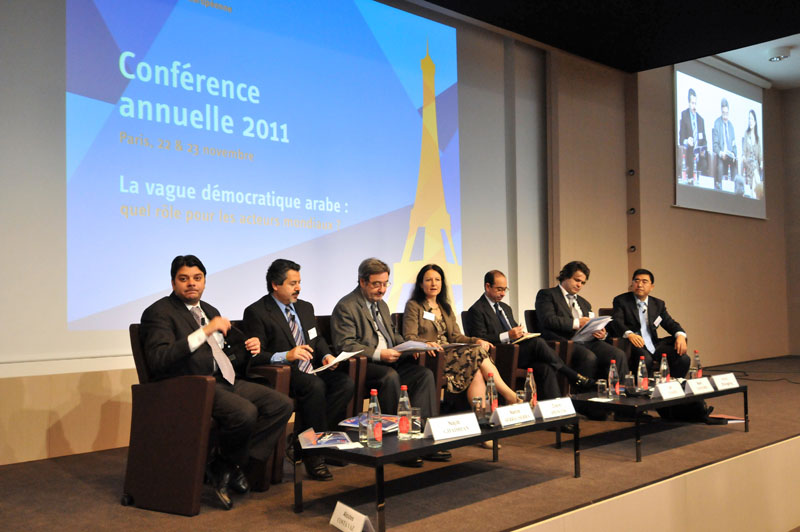You are here
Annual Conference 2011: the Arab democratic wave: what role for the global players?

Since 2007, the EUISS Annual Conference has centred on the topic of the efforts of the EU and its strategic partners to find effective multilateral answers to the most pressing issues of our time. This emphasis on the EU’s strategic partnerships and on multilateralism derives from the deep conviction that, in a polycentric world, successful international responses cannot just be driven by an EU-US coalition but must involve a much larger number of actors. The Arab democratic wave that was sparked off by the self-immolation of a young unemployed graduate in Tunisia in December 2010 has since been the focus of much international attention and diplomatic engagement on the part of leading powers. The 2011 EUISS Annual Conference will examine the current state of play as well as the obstacles and constraints to transition and political and economic reform in the wider Mediterranean area. It will do so with a view to exploring in what areas and in what ways the international community can lend its support to the citizens of the Arab countries and will examine the global governance initiatives undertaken so far in this light. Europe is particularly affected by developments in its close neighbourhood, and has a vested interest in seeing the region enter a new era of democracy, prosperity and peace. The issue, however, is also of major concern to the wider international community. The conference is thus not merely designed to explore new avenues of Euro-Mediterranean cooperation, but seeks to bring together the EU’s privileged partners to devise a common approach to lending international support to the process of democratic transition in the Arab world, bearing in mind national specificities and addressing the key areas where assistance is sought by Arab societies. The conference will take place in November, almost a year after the wave of uprisings in the Arab world began. This is the right time to make an assessment of the way in which the Arab revolutionary wave has developed, to examine how the policies pursued by the EU and other international actors are playing out, and to propose a change of course where needed.